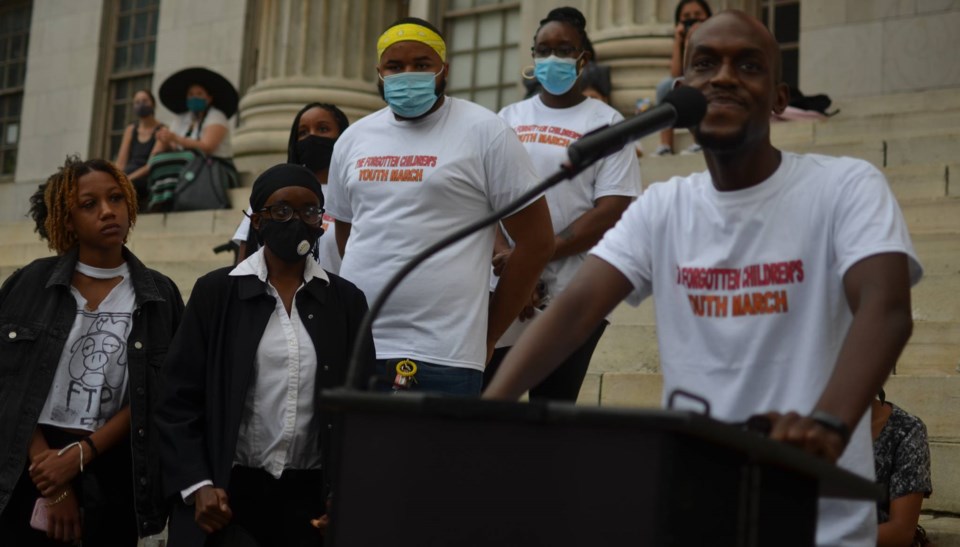Around a hundred people gathered at Borough Hall Saturday as part of a rally and march for foster youth, decrying how many youth are being cast aside and left homeless after they age out of foster care at 21.
The rally included numerous speakers who were either previously in foster care or had family who were.
Felicia Wilson, CEO of nonprofit organization What About Us, said young people aging out of foster care had no services set up for them once they left care and many went straight into homeless shelters. She said there was also no safety net for youth in case of emergencies, highlighted during the COVID-19 pandemic.
"They had nowhere to go. A lot of them had to end up in shelters, or living on the streets, or couch to couch at a friend's house," she said. "Some foster homes didn't even want them back following COVID. So there's a major issue that we need to address."
According to NYC Administration for Children's Services, a little more than half of all foster youth are on track to graduate high school in four years, with 5% set to graduate in 5 years, leaving a huge number of foster youth unlikely to graduate. Data shows 20% of foster youth end up homeless once they age out of care. Brooklyn has 1,878 youth in foster care, the second highest number after the Bronx. The majority of foster youth are African-American.
Monique Tatum said she went to the rally because she was inspired by stories she had heard from former-foster youth.
"There are a lot of foster youth just as intelligent, just as beautiful, young people, Black and Brown, that don't know what they're entitled to and don't know how to reap the benefits from the system and the system is not telling them," she said. Tatum said one youth she knew of was handed a metro card and a few dollars and sent on his way when he aged out of care. "There is no preparation for them aging out," she said.
Tatum said protestors were taking their demands to ACS Commissioner David Hansell.
Rally organizer Jamell Henderson, a former-foster care youth and four-time CUNY graduate, said it was important for Black youth in foster care to be treated the same as white youth. "Black children and adolescents in foster care must be given the same priority as any other children in foster care," Henderson said.
Henderson spoke about his experience having 13 police officers and an ACS worker show up at his house and take him in a van. He said how his foster parent, "taught him the importance of having a home" and how that stability allowed him to accomplish what he was able to accomplish.
"My story should be reflective of thousands of other Black children," Henderson said.



.png;w=120;h=80;mode=crop)
